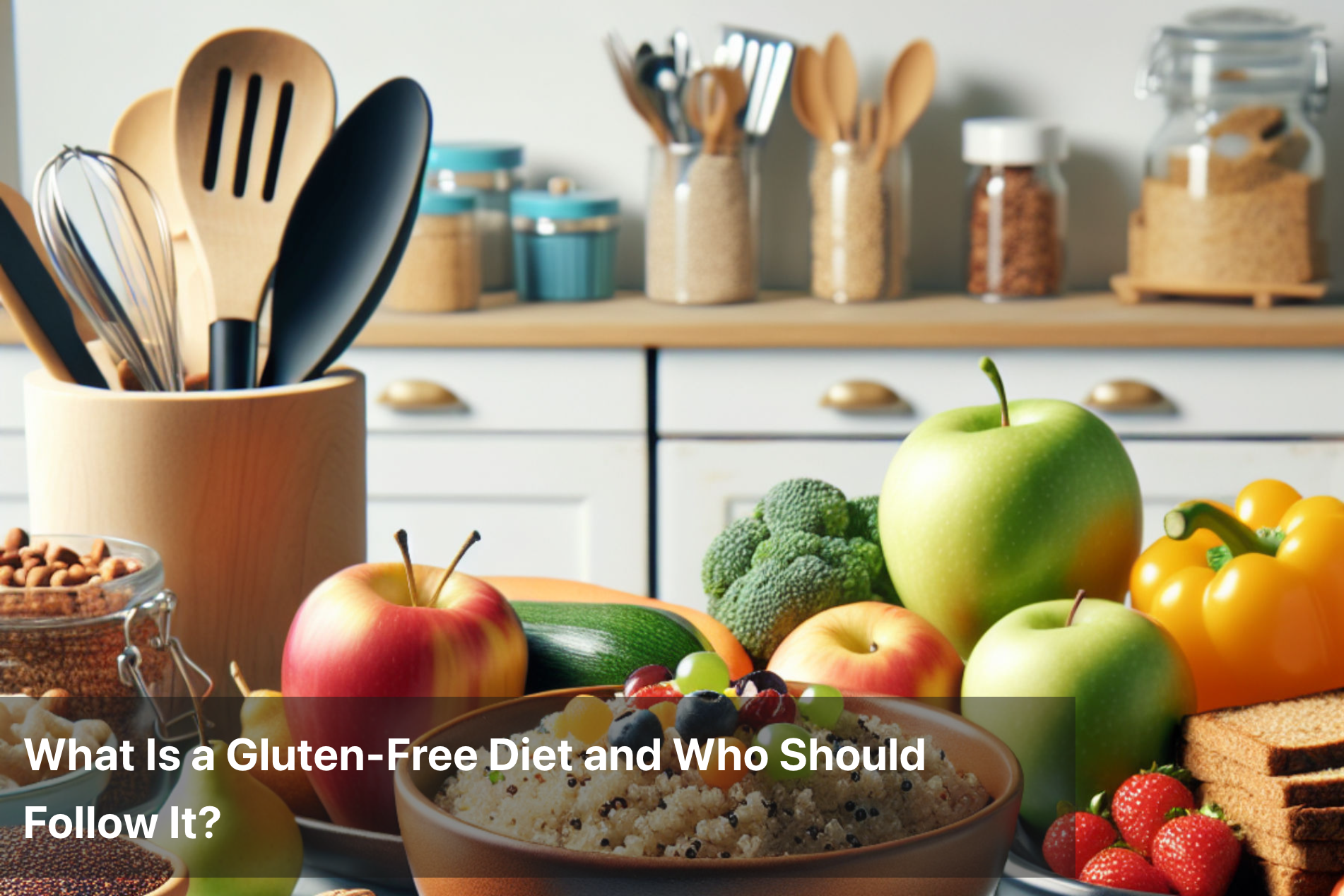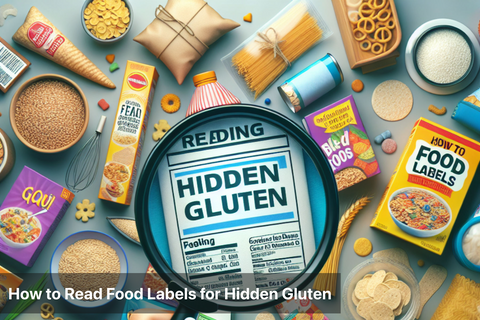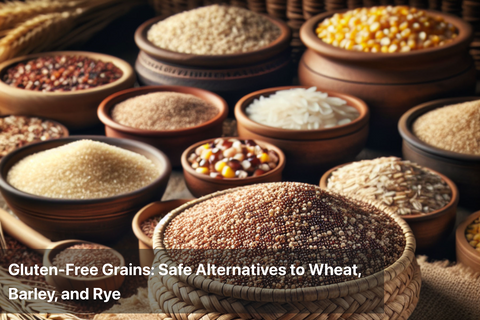
What Is a Gluten-Free Diet and Who Should Follow It?
A gluten-free diet excludes all foods that contain gluten, a group of proteins found in wheat, barley, and rye. Gluten provides elasticity and structure to dough, helping baked goods maintain their shape and texture. While gluten is safe for most people, it can trigger a range of adverse health effects in those with specific medical conditions. For these individuals, avoiding gluten isn’t just a trend — it’s a necessity.
Adopting a gluten-free lifestyle requires careful attention to food labels, ingredient lists, and cross-contamination risks. It can be highly beneficial for those with celiac disease, non-celiac gluten sensitivity, or wheat allergy. However, for others, cutting gluten without medical reason may not offer any added health benefits and could even lead to nutritional imbalances.

Who Needs to Follow a Gluten-Free Diet?
A gluten-free diet is primarily intended for people with specific medical conditions that involve an adverse reaction to gluten:
-
Celiac Disease: An autoimmune condition where gluten triggers an immune response that damages the lining of the small intestine. Even small amounts of gluten can cause inflammation and nutrient malabsorption.
-
Non-Celiac Gluten Sensitivity (NCGS): People with NCGS experience symptoms similar to celiac disease but without the autoimmune damage or intestinal damage. The exact mechanism is still under research.
-
Wheat Allergy: An allergic response to proteins in wheat, which may include gluten. Symptoms can range from skin rashes to life-threatening anaphylaxis.
For individuals with these conditions, a strict gluten-free diet is essential for managing symptoms and preventing complications.
Causes of Gluten Sensitivity and Intolerance
The reasons why certain individuals react to gluten involve complex interactions between genetics, immune responses, and gut health:
-
Genetic predisposition: People with HLA-DQ2 or HLA-DQ8 genes are more likely to develop celiac disease.
-
Leaky gut and intestinal permeability: When the gut lining is compromised, gluten may pass through and trigger immune responses.
-
Immune system dysfunction: In autoimmune disorders like celiac disease, gluten prompts the immune system to attack the body's own tissues.
-
Environmental triggers: Infections, stress, and early gluten introduction may play a role in developing gluten-related conditions.
Understanding the root cause is crucial for determining whether a gluten-free diet is appropriate and how strict it needs to be.
Foods to Avoid on a Gluten-Free Diet
Gluten hides in more foods than many people expect. Aside from obvious sources like bread and pasta, it can be found in sauces, processed foods, and even some medications or supplements.
|
Foods That Commonly Contain Gluten |
Examples |
|---|---|
|
Wheat-based products |
Bread, pasta, cakes, cookies, pizza dough |
|
Barley and rye |
Malt, beer, rye bread |
|
Processed foods with additives |
Sauces, salad dressings, soups, flavored chips |
|
Cross-contaminated grains |
Oats not labeled gluten-free |
|
Meat substitutes made with wheat gluten |
Seitan, some veggie burgers |
Reading labels and choosing certified gluten-free products can help avoid accidental exposure.
Potential Nutritional Deficiencies on a Gluten-Free Diet
Eliminating gluten-containing grains may also reduce intake of key nutrients if not replaced thoughtfully. Some of the most common nutritional risks include:
-
Fiber: Whole wheat is a major fiber source. Without it, digestion may slow down.
-
Iron: Fortified breads and cereals often supply iron. A gluten-free diet may need more iron-rich foods like legumes or red meat.
-
B vitamins: Folate, thiamine, and niacin are found in many enriched wheat products. Consider whole foods or supplements as needed.
-
Calcium and vitamin D: Often a concern in individuals with celiac disease due to malabsorption issues.
To avoid deficiencies, it’s important to include naturally nutrient-rich foods or opt for fortified gluten-free alternatives.
Is a Gluten-Free Diet Beneficial for Everyone?
While gluten-free eating is essential for those with gluten-related disorders, it may not be beneficial for the general population. Eliminating gluten without medical need can:
-
Limit food choices unnecessarily
-
Increase reliance on processed gluten-free products, which are often high in sugar and fat
-
Lead to nutrient imbalances
-
Create confusion about balanced eating
Unless medically advised, a gluten-free diet is not inherently healthier. It’s best to base dietary changes on medical guidance rather than food trends.

Tips for Successfully Following a Gluten-Free Diet
Navigating a gluten-free lifestyle can feel overwhelming at first, but it becomes easier with practice. Some helpful tips include:
-
Always read ingredient labels, even on products you’ve bought before
-
Look for “certified gluten-free” labels to reduce cross-contamination risk
-
Prepare meals at home using whole, unprocessed ingredients
-
When dining out, inform restaurants clearly about gluten restrictions
-
Join gluten-free communities for support, recipes, and updates
A thoughtful approach to eating can help maintain variety, nutrition, and enjoyment while staying gluten-free.
Summary
A gluten-free diet is a critical therapeutic approach for individuals with celiac disease, non-celiac gluten sensitivity, or wheat allergy. It involves the complete removal of gluten-containing grains and vigilance to avoid hidden sources of gluten. While the diet offers significant relief for those with gluten-related conditions, it must be balanced and carefully planned to avoid nutritional shortfalls.
At Lofoods, discover gluten-free options that combine health with flavor. Whether you're managing a health condition or simply exploring gluten-free living, making informed food choices is key to long-term wellness.
This Blog post is an initiative by Lo! Foods, to provide accurate and Nutritionist / Doctor approved information related to Health. Lo! Foods is India's leading brand for Everyday Functional Foods. Foods designed for specific Health conditions or Needs. Lo! Foods also runs India's largest range of Low Carb Healthy Cloud Kitchens, under the brand names of Lo!, ProteinChef, ATH (All Things Healthy) and DiabeSmart.















Leave a comment
Your email address will not be published.